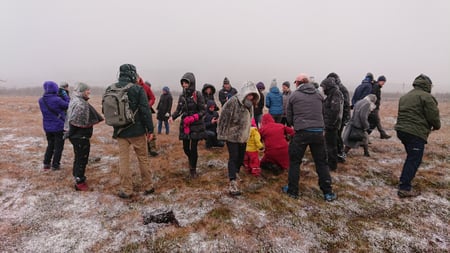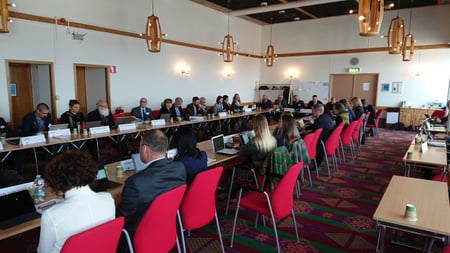Arctic Monitoring and Assessment Programme (AMAP) 32nd Working Group meeting was held between September 25-27 in Kiruna, Sweden, which was hosted by Sweden and Saami Council. Participants of this meeting were as follows; Eight Arctic States (Canada, Denmark, Finland, Iceland, Norway, Russia, Sweden, and US), three of six AC permanent participants (indigenous peoples’ organizations; ICC, AAC, and Saami Council), six of thirteen AC observer countries (France, Germany, Italy, Japan Netherlands, and Rep. Korea), and related organizations (EC, IASC, UNEP, UArctic, and WMO).
Based on the AMAP workplan 2017-2019, many scientific assessment works have been conducting. Progress and future plan of these assessment works were reported and discussed. Also, there was a discussion about “AMAP Strategic Framework 2018+” which was updated and revised several times since the previous AMAP HoD meeting in February 2018. It will be finalized and approved by the next AMAP HoD meeting in February 2019 and will then be printed in hard copies.
There are two main topics on the AMAP scientific assessment works, Pollution and Climate issues. Outlines of two assessment reports on “Arctic Ocean Acidification (AOA)” and “Biological Effects of POPS and Mercury” were presented at the meeting and the draft documents of these reports were basically approved. Note that these reports were delivered in October 2018. Regarding Climate issue, the working group approved the AMAP Meteorological and Climate workshop which was held in Copenhagen on 6-8 November 2018. Future plan and work plan for 2019-2021 for the AMAP climate work were discussed at this workshop. Prof. Ukita (Niigata University) participated in this workshop and would be nominated as one of the AMAP climate EG members. AMAP encouraged to nominate experts both for climate and ecosystem effects issues. Although there is no session for Observers’ contributions in this meeting, AC countries and AMAP secretariat expressed thanks to Japan’s contributions to AMAP activities and wish for our continuous scientific contribution.
On the day before the workshop (Sept. 24), we had a tour to visit Abisko Scientific Research Center which is located at the north-western side from Kiruna and close to the boarder with Norway. The center has been conducting long-term monitoring and research for climate and terrestrial ecosystem since early twentieth century. We also visited observation site of permafrost near the center and had a lecture for the monitoring. It was very interesting time for all of the participants.
Takashi Kikuchi (JAMSTEC, theme 4 PI)
 Visit of Abisko Scientific Research Center (Permafrost monitoring site)
Visit of Abisko Scientific Research Center (Permafrost monitoring site)





